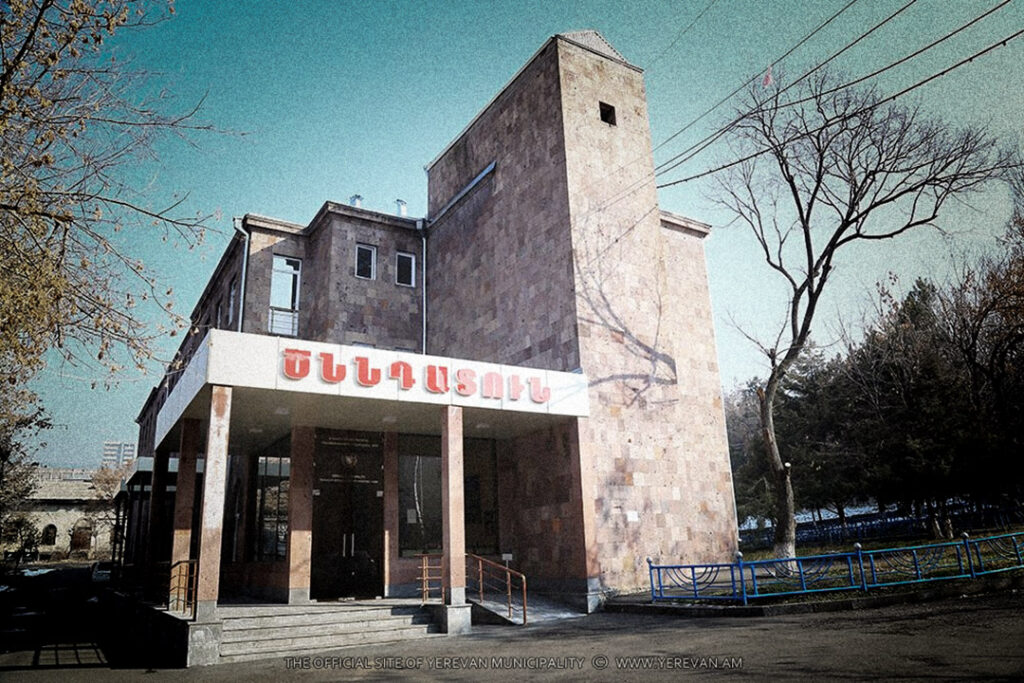Though the rate of teenage pregnancies in Armenia is declining, it remains substantial. Meanwhile, the stigma of unwanted pregnancy continues to lead teenagers to self-administer abortion medication without medical supervision.
‘I was 15 years old. Those were the best days of my life. My boyfriend and I lived for each other.’ Anna, now 25-years-old, (not her real name) told OC Media. ‘Then I realised I was pregnant.’
‘My boyfriend was 16’, she recalled. ‘Using protection didn’t cross our minds. We were just kids.’
‘One week, my period was late. A neighbour who was studying at the Medical University realised I was pregnant. She bought a pregnancy test for me, which came out positive. Later, my boyfriend and I bought 10 more tests. They were all positive.’
Anna’s experience is not unusual. Even though the number of teenage pregnancies has fallen in recent years — it halved between 2000 and 2015 — teenagers between 15-19 still account for 4% of all pregnancies in the country.
Worse still, pregnant teenagers also face a harsh social stigma, even when they are victims of rape.
‘There are children who have consensual sex and get pregnant. There are also children who are victims of violence,’ Tatevik Aghabekyan, the head of the Sexual Violence Crisis Centre told OC Media. ‘Children are often afraid to tell their parents about their pregnancies, so they conceal them.’
According to Aghabekyan, 90% of underage pregnant women are married. In some villages in Armenia, it is common for girls to marry as adolescents. Armenian law allows children to marry at 16 if the child’s legal guardians consent and the other party to the marriage is at least 18 years old.
Yet many unwanted pregnancies occur outside of marriage, resulting from both consensual relationships and rape. A lack of adequate support networks and fear of social stigma leads many teenage girls to self-administer abortion medication without proper medical supervision — sometimes with severe consequences.
‘I lost so much blood’
The budding pregnancy terrified Anna and her boyfriend. Her neighbour helped her procure and administer abortion pills. ‘We didn't go to the doctor. I was terrified by the thought that my family or acquaintances would find out.’
‘I took abortion pills. That day, I lost so much blood that I thought there wouldn't be one drop of blood left in me. My friend stayed with me but I didn’t know where my boyfriend was. A week later, he came to see me and said we should separate.’
Today, Anna has been married for three years and now wants a child, but the abortion pills severely impacted her reproductive system. ‘Those drugs wrecked my body. I am going through a difficult phase of fertility treatment. I am terrified by the thought of not being able to become a mother.’
Obstetrician and gynaecologist Tatev Davtyan told OC Media that Armenian women should be conscious of the dangers of self-administering abortion medication. ‘Every woman should understand that any pregnancy can be the last one. It doesn't matter whether it was the first or the third.’
‘Women should not play with their health’, she added, recalling numerous cases of women who had attempted to self-administer abortions through medication, and ending up in the hospital.
Davtyan said she had not personally treated any underage pregnant women at her practice. She said the youngest ones who visit her are 18 years old, including women who became pregnant from extramarital affairs and rush to terminate their pregnancies.
‘They come here scared. They don't tell their parents about it.’
Silence
Many teenage pregnancies are the result of the rape of children by adults, Tatevik Aghabekyan, the head of the Sexual Violence Crisis Centre, told OC Media, adding that far too often children remain silent.
‘Children blame themselves for what has happened’, she said. ‘They believe that no matter what they say, society will either blame the child or her parents, so they keep silent about what they have suffered.’
According to Aghabekyan, it is of the utmost importance for society not to isolate these children and to help them return to normal life.
In 2018, Aghabekyan’s centre supported four teenage girls who were pregnant, including a girl whose mother tried to keep her away from medical and psychological professionals with Aghabekyan only permitted to speak to the girl in the hospital.
‘With all four of these children, there was one common thread: none realised what had happened to them. Even the growing belly and pains were not associated with pregnancy. They were children who had not recieved proper sex education and were unaware of what was happening to them.’
In 2019, the Sexual Violence Crisis Centre dealt with a shocking case — a 13-year-old girl with an intellectual disability who gave birth that summer.
Aghabekyan said the 13-year-old mother did not realise she had become a parent, though she hugged her baby at the hospital.
‘She still calls her baby a doll. In her imagination it’s a doll. She always repeats, “When I earn money, I will take my doll home.”’




 21 August 2020
21 August 2020




